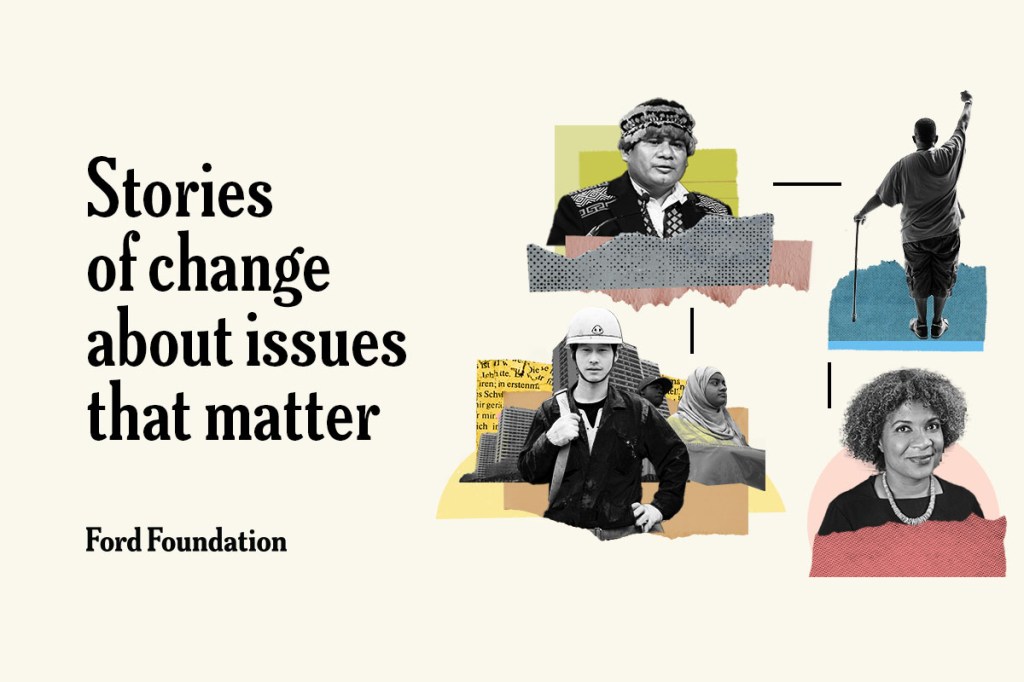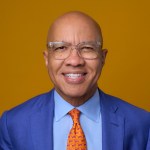
Good afternoon.
I’d like to thank my friends Jonathan Fanton and Don Randel.
And as the expression goes, I’d like to thank the academy!
I’m humbled and honored to join you—and to accept your induction into the venerated ranks of the American Academy of Arts and Sciences. I must say, this is a moment made all the more humbling by dint of the distinguished colleagues and friends with whom I share this day—my fellow inductees.
My journey to this hallowed hall began in a small, segregated Louisiana town—fifty-some years ago—where I was born in a charity hospital to a single mother. As I got older, my mother realized that a community poisoned by poverty and prejudice was not a place of opportunity for my sister and me. So, we moved to Texas—to Ames, population 1,400—where we had family. We lived in a narrow, shotgun house. My mom studied to become a nurse’s assistant, a job she worked—with pride and dignity—for decades. We didn’t have a lot. But we had enough.
I was in the Inaugural Head Start. I attended public schools… the University of Texas… where I received scholarships endowed by wealthy, generous Texans—along with Pell Grants financed by the American people.
The entire time, I felt like everyone—my state; my country—was cheering me on.After law school, I moved to New York, where I worked at a law firm, then an investment bank. I led a community organization in Harlem. And after many years working in community development, I joined the Rockefeller Foundation…then the Ford Foundation, the institution that I now am privileged to serve.
Now, I share all of this not because I am special. I share this because it shows how America is special.
And while it is true that we have our share of problems…for much of my lifetime, America’s social-mobility escalator has been moving—lifting people as high as their hard work and talent will take them.
But, today, that escalator is slowing to a crawl. For some, it’s stopped completely.
What does this say America’s future?
I worry and despair that in the years ahead, stories like mine will be far less likely in America.
And the reason, in a word, is inequality.
Across the country and around the world, we face a crisis of inequality—what I consider the existential threat of our time. Inequality—in all its forms: economic, social, political, racial, gender—compounds upon itself. Because of widening gaps, more people are slipping through the cracks, falling further and further behind.
We’ve seen the manifestations of inequality all across our society—whether you’re looking at overrepresented populations in our jails and prisons, or underrepresented ones in our boardrooms and c-suites. We’ve read about it in the opinion pages and best selling books. We’ve felt its asphyxiating affect on our democracy.
I’m deeply unsettled—deeply troubled—by all of this.
I’m unsettled because I was visiting with a prominent University president recently who voiced appreciation for a recent essay I wrote on inequality.
I suggested that it would be helpful for him to write and speak about inequality and he replied that he couldn’t risk offending his rich trustees and donors.
So, it’s unsettling when leaders of institutions of higher education—which undergird our democratic society—censor themselves on justice and fairness because they are afraid of offending the privileged.
And as someone who benefits from great privilege—in a room replete with people who have benefited from great privilege—I think about my obligations to earn this privilege; to interrogate my own privilege;
Ask myself–how do I use my privilege as a tool to address—rather than compound—the inequality which makes my privilege possible.
Of course, this obligation is not new.
A century and a quarter ago, the industrialist Andrew Carnegie found himself the beneficiary of the American Dream; this son of poor immigrants had risen to become one of the wealthiest men in the world. In 1889, Carnegie reflected on these things in an essay we now refer to as the Gospel of Wealth.
He wrote, and I’m quoting here:
“Rich men should be thankful for one inestimable boon. They have it in their power” to organize “benefactions from which the masses of their fellows will derive lasting advantage, and thus dignify their own lives.”
It’s worth remembering, too, that Carnegie articulated his philosophy during a time when inequality had reached unprecedented levels in the United States.
And in our own era of rising inequality, we must openly acknowledge—and confront—a tension inherent in our economic, political and social systems.
This tension is plain to see:
Our systems in America perpetuate vast differences in privilege, and then task the privileged—all of us—with improving the systems that benefit us.
As a foundation president, my thinking on this issue has been shaped by Dr. Martin Luther King Jr. About philanthropy, he wrote, and I quote:
“Philanthropy is commendable… But it must not cause the philanthropist to overlook the circumstances of economic injustice which make philanthropy necessary.”
To me, Dr. King’s words are my North Star—a guiding light.
He challenges us to assess and address underlying structures and systems, to uproot the root causes of suffering and injustice, to not “overlook the circumstances” that make our work necessary. To Love country—unwavering and unstinting.
But I’m an optimist, optimistic because of institutions like the Academy which oxygenates our democracy. For one thing, we know so much more than we did 125 years ago. We have so much knowledge—in part because of the work of this Academy—and this knowledge compels and directs our action. All of my life, I’ve benefited from—and learned from—the generosity of privileged people who understood their obligations; the pressure that comes with their privilege.
It will take all of us embodying this spirit—actively working; attentively questioning—to address the fundamental barriers to opportunity for too many Americans.
It will take all of us remembering that our greatest privilege—our “inestimable boon”—is our opportunity to repair our nation’s fabric in the service of human dignity and justice for all.
This is the work of our generation.
And I am proud to be on the journey with so many of you, members of the American Academy of Arts and Sciences.
Thank you, all, very much.
